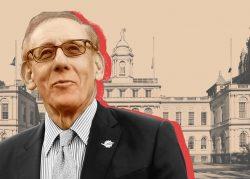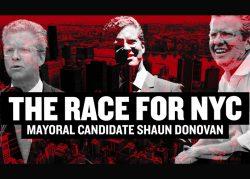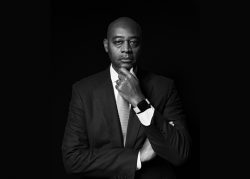Voters are sure they want more housing in New York City.
As for which mayoral candidate should lead that effort, they are clueless.
A new phone poll shows 76 percent of 800 likely Democratic primary voters consider it very or extremely important to increase the supply of housing. But half are not ready to pick a nominee in the June 22 contest, which will all but determine the winner of November’s election.
For what it’s worth — which at this early stage is not much — former presidential candidate Andrew Yang leads the field with just 16 percent, according to the telephone survey commissioned by Fontas Advisors, a government affairs firm. Then comes Brooklyn Borough President Eric Adams at 10 percent and former de Blasio administration lawyer Maya Wiley at 6 percent.
City Comptroller Scott Stringer notched 5 percent and former banker Ray McGuire 4 percent. Just 2 percent backed former Obama housing czar Shaun Donovan, former sanitation commissioner Kathryn Garcia or former nonprofit executive Dianne Morales.
“This race is wide open,” said George Fontas, CEO of his eponymous firm. “No candidate can claim to be leading the mayor’s race when the majority is undecided.”
Read more



A potential concern for Stringer is that his support is roughly half that of Adams’ despite having nearly equal name recognition among likely voters — more than 60 percent. But Fontas noted that the comptroller has plenty of time and money to make his case.
“The campaigns that have the resources to go after those undecideds are probably in the strongest position,” the consultant said. “Three months in a New York City election is an eternity.”
In the poll, by Core Decision Analytics, voters’ preference for adding housing emerged from a question on how important they viewed certain issues. Combining the “extremely,” “very” and “somewhat” answers yielded 93 percent in favor, which some developers might view cynically, given the public opposition they face to nearly every residential development that would exceed current zoning.
That dynamic, however, is well known in housing circles: People support housing construction in theory, but not so much when it is proposed in their neighborhood.
“We get the story wrong in New York,” developer Meredith Marshall told The Real Deal last month in an interview. “We should have naturally occurring affordable housing [and] increase the supply.”
But the economics of doing that are complicated, and civic leaders propose “schemes” that cannot work, he said.
“It’s not because they’re not intelligent,” Marshall said. “But they don’t know what they’re talking about.”
